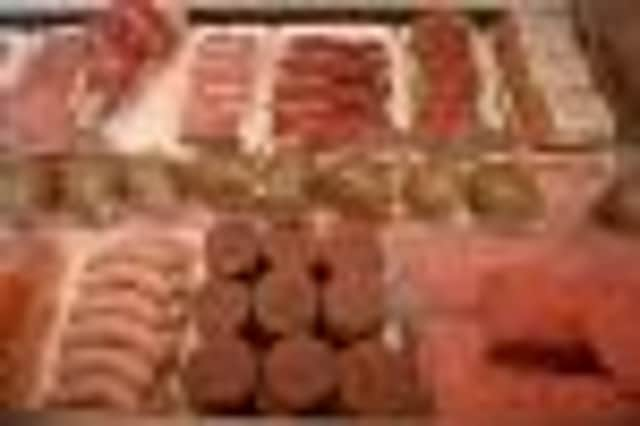Horsemeat: European hotspots revealed


Random tests of thousands of meals from across Europe have found evidence of horsemeat in 4.66 per cent of products – with food from France and Greece most likely to be affected.
The testing programme, agreed by the European Union in a bid to restore consumer confidence, also detected the veterinary painkiller phenylbutazone, or bute, in 0.51 per cent of the beef products.
Advertisement
Hide AdAdvertisement
Hide AdIn the UK, none of the beef products which were assessed in the EU programme tested positive for horse DNA.
However, 14 of 836 – around 0.02 per cent – of UK products which were checked were found to contain bute.
In France and Greece, the latest tests found horsemeat in more than 12 per cent of beef products.
The European Commission (EC) said the results confirmed that the scandal was a case of “fraud” rather than a food safety issue – reiterating the message that the risk to human health from eating contaminated products was minuscule.
Announcing the results, Tonio Borg, EC commissioner for health and consumer policy, said yesterday: “Today’s findings have confirmed that this is a matter of food fraud and not of food safety.
“Restoring the trust and confidence of European consumers and trading partners in our food chain following this fraudulent labelling scandal is now of vital importance for the European economy given that the food sector is the largest single economic sector in the EU.”
He added that the EC wants to strengthen the controls along the food chain “in line with lessons learned”.
The testing programme was agreed and funded by EU countries in February in a bid to gauge the extent of the problem and to reassure the public that the bloc’s food safety controls are adequate.
Advertisement
Hide AdAdvertisement
Hide AdA total of 7,259 tests were carried out on beef products by authorities in the 27 EU nations, of which 4,144 were checking for the presence of horsemeat DNA and 3,115 were looking for the presence of phenylbutazone.
Just 193 (4.66 per cent) of the tests for horsemeat were positive while only 16 (0.51 per cent) of the tests for bute found traces of the anti-inflammatory drug.
The country with the highest percentage of horsemeat in its beef products was France, where 47 of 353 tests were positive, over 13 per cent.
Greece recorded the second-highest rate with horse DNA found in 36 of 288 tests.
Formerly used by doctors to treat patients suffering from gout and arthritis, bute was banned as a medicine for people after it was found that it can cause a serious blood disorder, aplastic anaemia, in rare cases.
It is extremely unlikely that anyone would suffer serious ill-effects as a result of eating meat containing bute. It is still used for animals, but it is not allowed to enter the food chain. Norway and Switzerland also took part in the testing, reporting just one positive test for bute and seven for horsemeat.